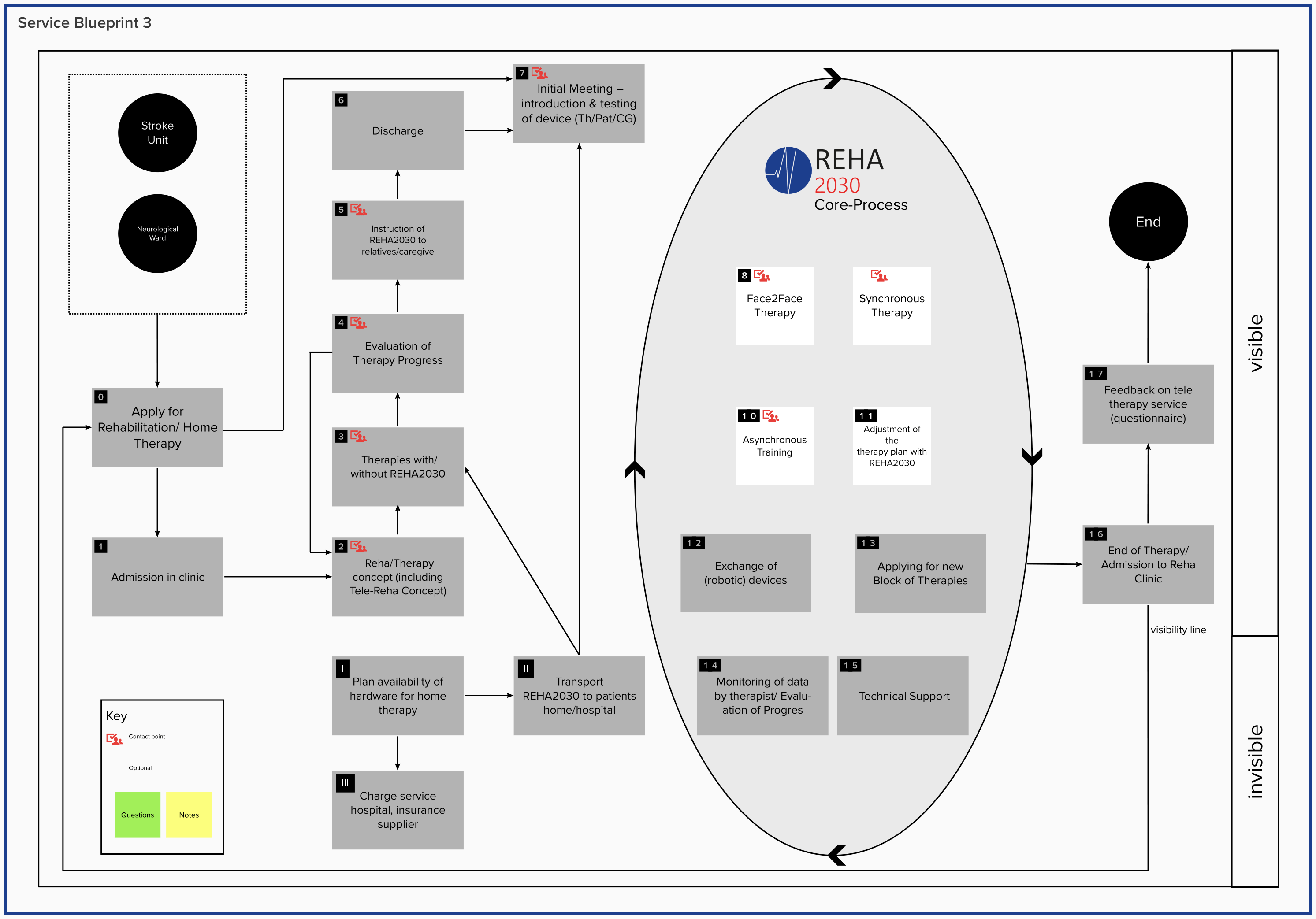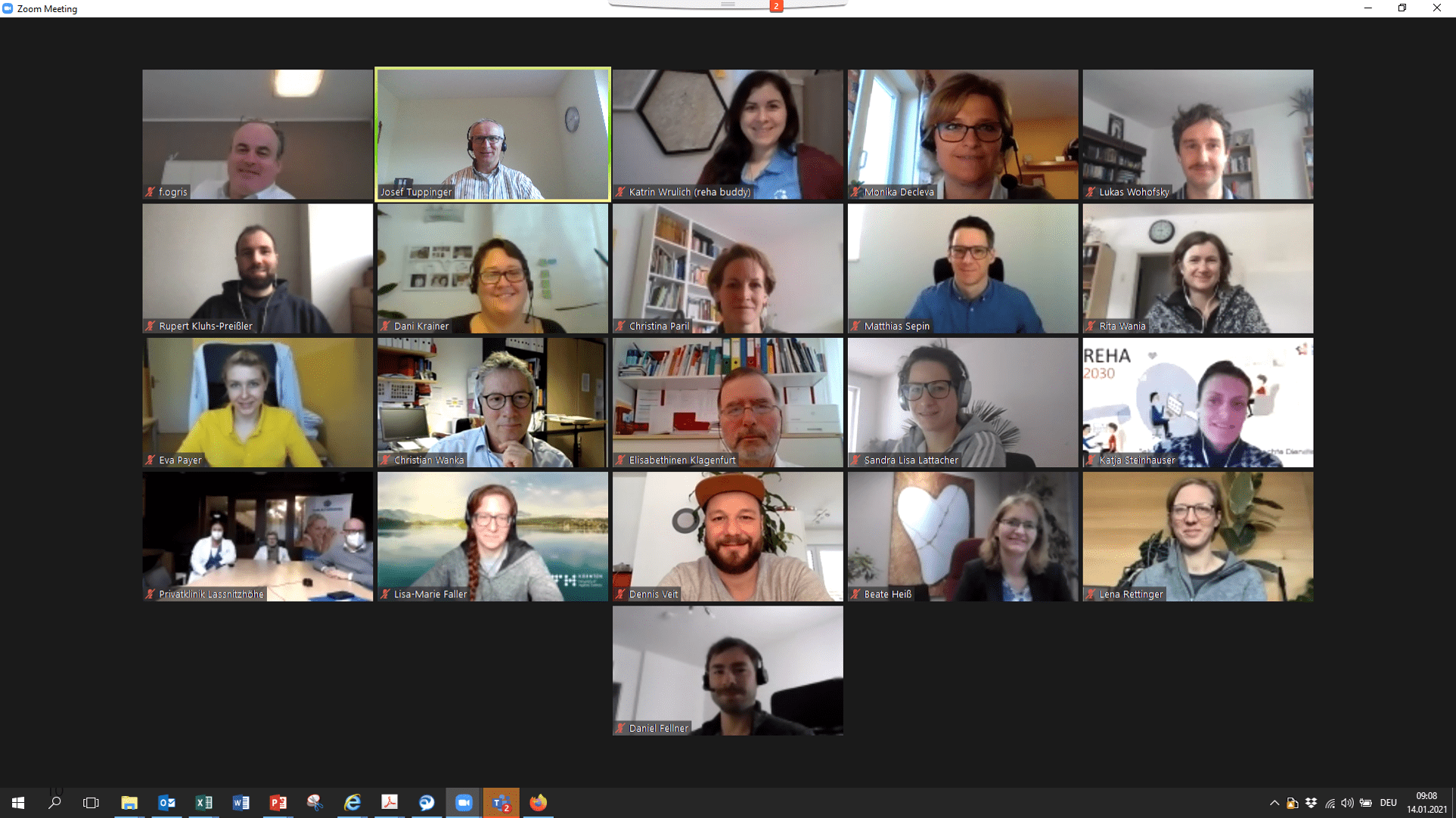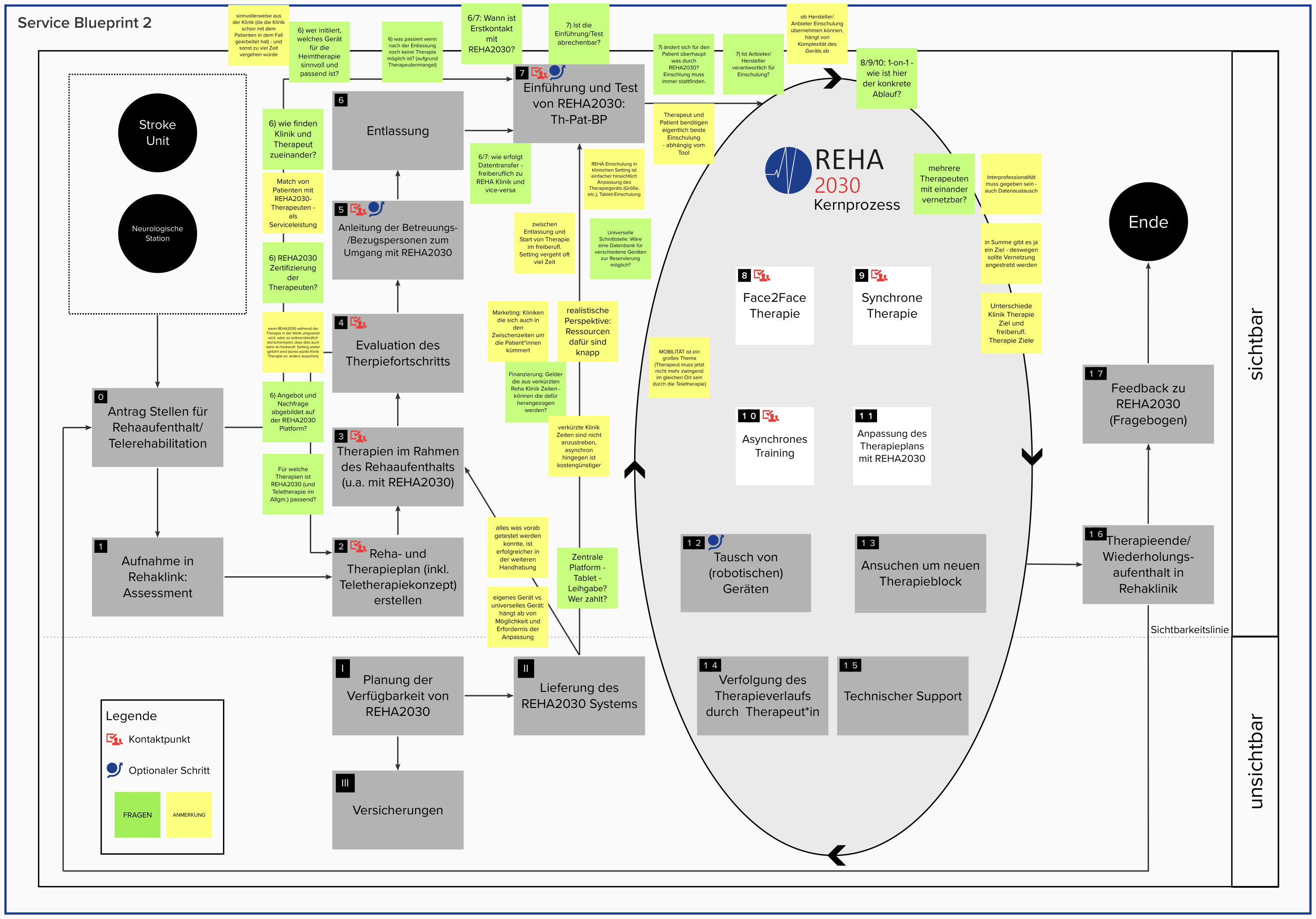results. In terms of the service blueprint, the workshop showed that the developed service model already contains the vast majority of the relevant steps, from the application for (tele)-rehabilitation and inpatient rehabilitation to the procurement of the technical components and the actual conduction of teletherapy.
Individual aspects of the service model were discussed intensively, such as the opportunities that exist with inter-organizational solution such as REHA2030. With the REHA2030 system, the transition between rehab clinics, freelance therapists and general practitioners could be bridged, demands and availabilities could be mapped, and joint work with the aim of providing the best possible care for patients could be strengthened by fostering communication.
The greatest challenge in the REHA2030 service model is the financing. The Future Talk workshop came up with possible ways, which financing models are conceivable but also what needs to be considered with regard to accessibility to the services (social gap). In response to the questions about the service provider – who will take over the provision, delivery, support, etc. – possible solutions were shown how these open issues can be dealt with in the future. This showed how diverse the options are: from insurance companies as umbrella companies with subcontractors and service contracts with orthopedic technology companies to the integration of individual services in the range of services offered by rehab clinics to the implementation of single activities by therapists – approaches that will be followed up on.
These results are extracts from a large amount of information collected in the workshop.




